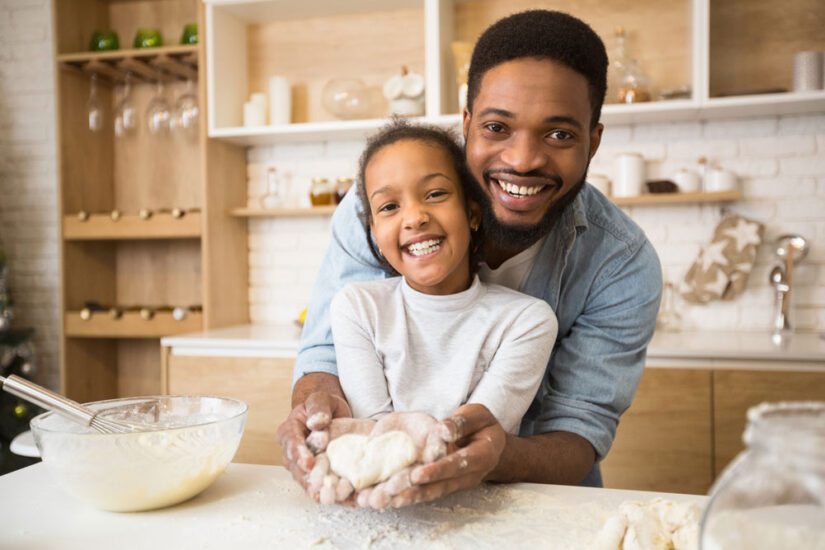Looking for an engaging activity to try at home? Whip something up in the kitchen! Here are 5 reasons cooking with your kids is a great learning activity – and a whole lot of fun!
1. Following a recipe is good practice for following instructions. As teachers often point out, some students have difficulty following directions. It’s not uncommon for students to glance over the instruction portion on their homework, only to cause difficulties when attempting the actual assignment. Cooking with a recipe to guide them is a great way for kids to practice following step-by-step instructions!
2. Cooking inspires creativity. Depending on what ingredients you have available, the culinary possibilities are endless. Encourage your kids to choose what they’d like to cook – from baking cookies to preparing delicious entrees, there are plenty of creative possibilities for your kids to explore in the kitchen!
3. Working in the kitchen encourages multitasking skills. As we’ve discussed on our blogs before, developing executive function skills is crucial for kids to succeed in school. These skills – which include time management, organizational abilities, and staying focused – are all used extensively when preparing a meal. Multitasking is a requirement when cooking! Preheat the oven – check. Set a timer – check. While waiting, set butter on counter to soften – okay, next. Grease a pan – got it. Working in the kitchen can get hectic, but it’s also great practice for keeping your focus and learning to multitask effectively.
4. Kitchen mishaps help to foster a growth mindset. Encouraging a growth mindset is a key aspect of Tutor Doctor’s philosophy – when students begin to develop an internal belief that they can improve and succeed through their own trials and efforts, they will thrive. Students who retain a growth mindset are able to easily bounce back from disappointing situations and remain resilient through challenging setbacks. Where does cooking come into all this? Well, it’s easy to make a mistake in the kitchen! Ever had a loaf come out too flat? Shoot, it must have needed to rise longer! A batch of cookies came out tasting funny? Darn, must have mixed up baking soda with baking powder! Kitchen mishaps are a fun way for kids to learn from their mistakes and develop a mindset of how to improve their approach next time.
5. Measurements are real-life examples of math (and its usefulness). A common reason students find difficulty with mathematics is because they don’t understand its applications – the classic “When am I ever going to need to know this?” mindset frustrated math students have exclaimed for generations. When following a recipe, it becomes clear why measurements and conversions are important. A great tip is to have your student adjust the serving size of the recipe. So for example, let’s say a recipe makes four trays of cookies. Have your student change the recipe to produce two trays worth. In the process, they’ll be using fractions and conversion methods! If a recipe calls for 1 cup of water but we’re cutting the yield in half, that means we’ll have to adjust our measurement to… ½ cup instead! This is especially good practice for smaller measurements – halving a recipe that calls for ½ teaspoon salt would require using ¼ teaspoon instead. Working with these types of procedures is a great way to help kids see the importance of math in the real world!


